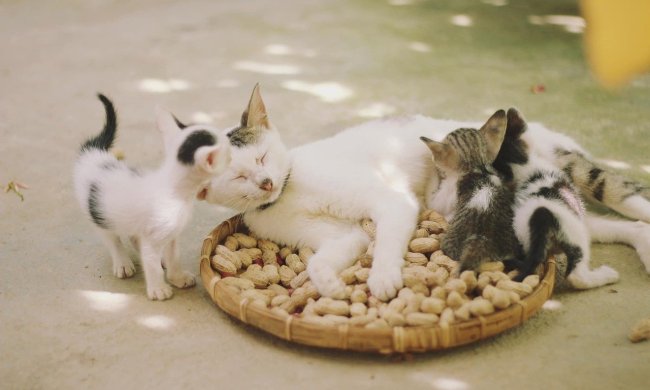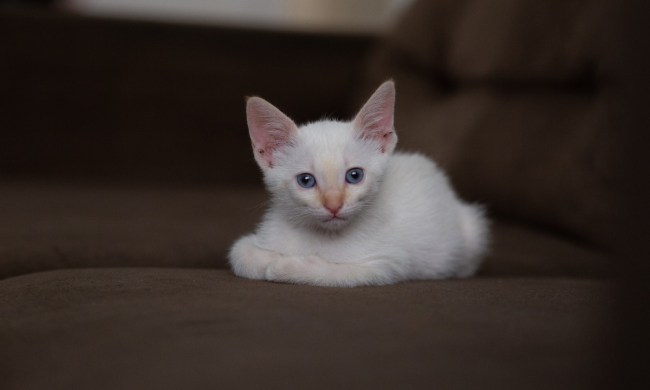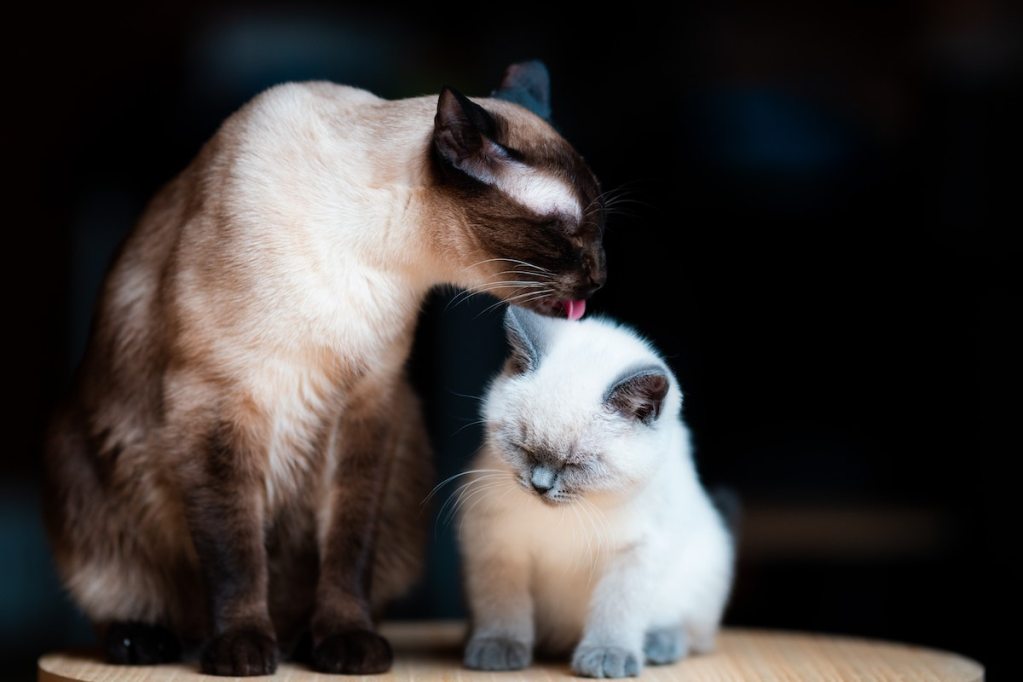
By the time you usually bring home a brand-new kitten at eight to nine weeks old, they’ve already gone through a significant transition: being weaned from milk to solid foods. However, you may find yourself in the trenches of new kitten parenthood at an even earlier stage. If you are fostering a kitten or have found a newborn, you have likely been bottle-feeding them milk or watching their mother nurse.
In these cases, you may wonder, “When do kittens start eating food?” Weaning is usually a natural process, particularly if the Mom is involved. If you’re bottle-feeding, the process may be a bit trickier, and you may have to help lead it. Regardless of your situation, understanding what to expect can help you know when to have kibble and water on hand as a kitten gets ready to wean. Consider this your guide.
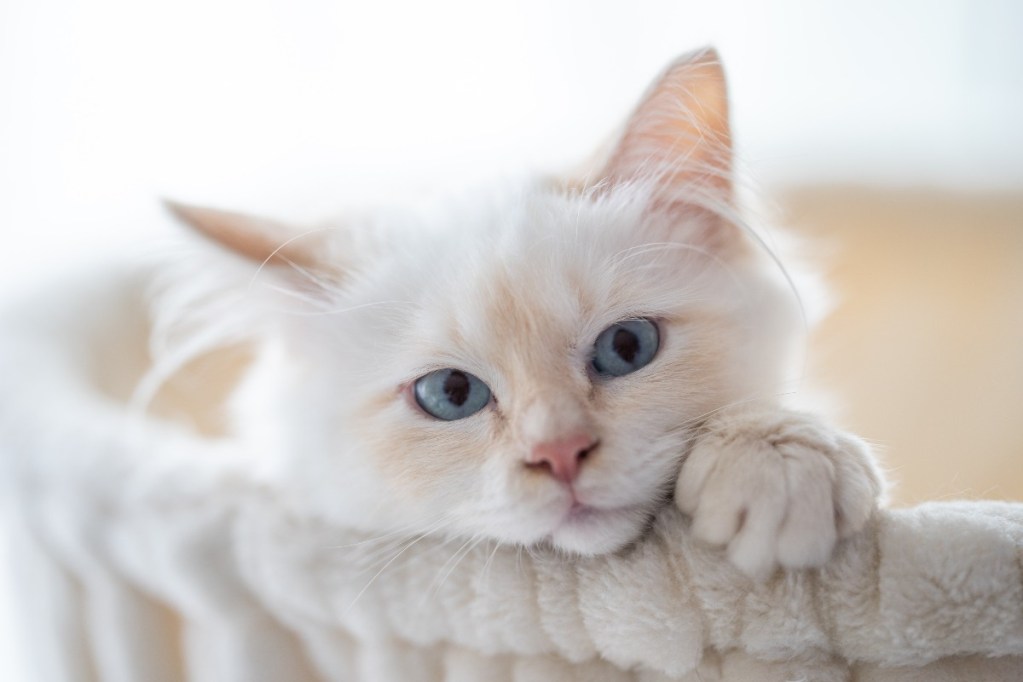
When do kittens start eating food and drinking water?
The weaning process involves going from the mother’s milk to kibble and water, which is what a kitten will eat and drink in some form for the rest of their life. If the mother cat is around, she’ll know when the time is right to start weaning, and it’s best not to interfere.
Generally, kittens will start to be ready to take small tastes of solid foods and water at around three to four weeks. The food and water are complimentary at this young age, so don’t worry too much if they play with it more than they eat it. They’re still getting most of their nutrition from Mom or a formula in a bottle.
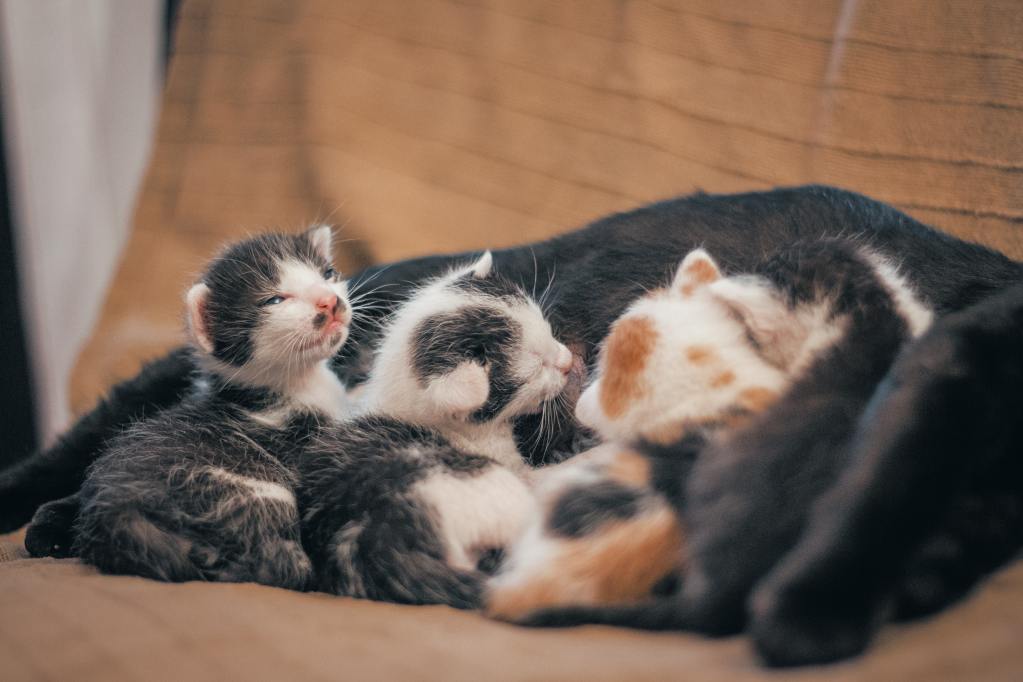
What do you feed a 3-week-old kitten?
A 3-week-old kitten will get all of their nutrition from their mother’s milk or formula if they are being bottle-fed. Some kittens may be ready for solid food at three weeks. If the birth mother is around and nursing, steer clear of interfering with the process — Mom and babies will know when the time is right to begin weaning.
If you are bottle-feeding a kitten, discuss whether the introduction of solids would be a good idea. Waiting until the four-week mark may be best, based on the kitten’s readiness. Even if you do begin solids at three weeks, a kitten’s primary nutrition source will remain milk or formula.
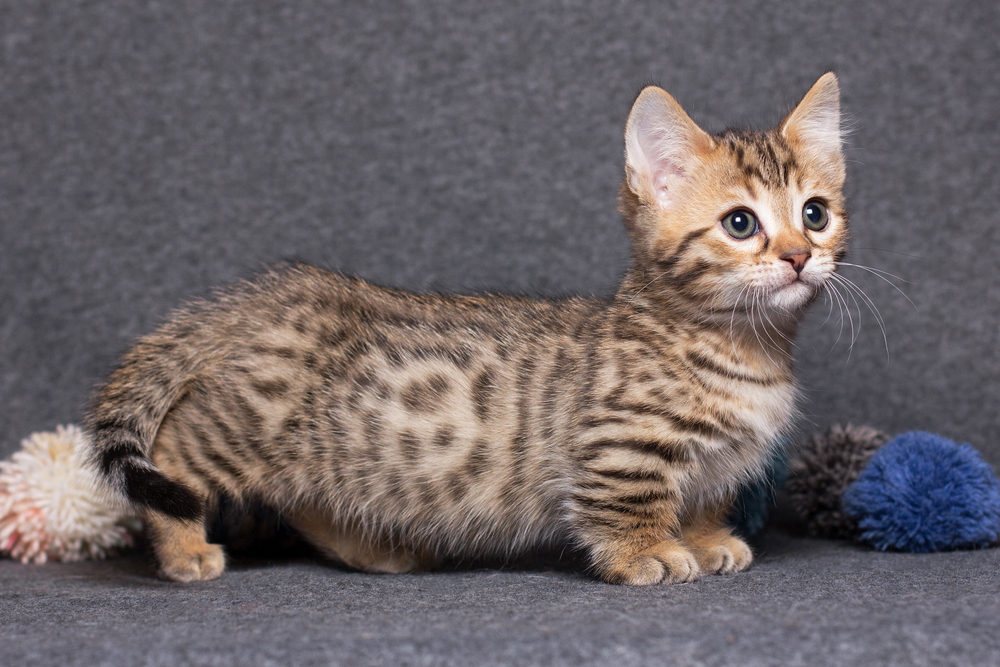
What do you feed a 4-week-old kitten?
You’ll start by feeding the tiny cat what’s known as “gruel,” or moistened cat food, as well as some dry kibble, formulated for baby cats. A small-batch gruel recipe calls for one-half can of wet kitten food with one-quarter can of formula. Put half of a can of gruel and dry food in one dish in your kitten’s crate and a bowl of water in another dish.
Adult cats generally drink 50 to 60 milliliters of water per kilogram or 2.2 pounds of body weight. You can put that out for a kitten, but don’t be surprised if she doesn’t drink it all. The kitten should still have formula three times per day (about every eight hours), or she should be allowed to nurse as desired.
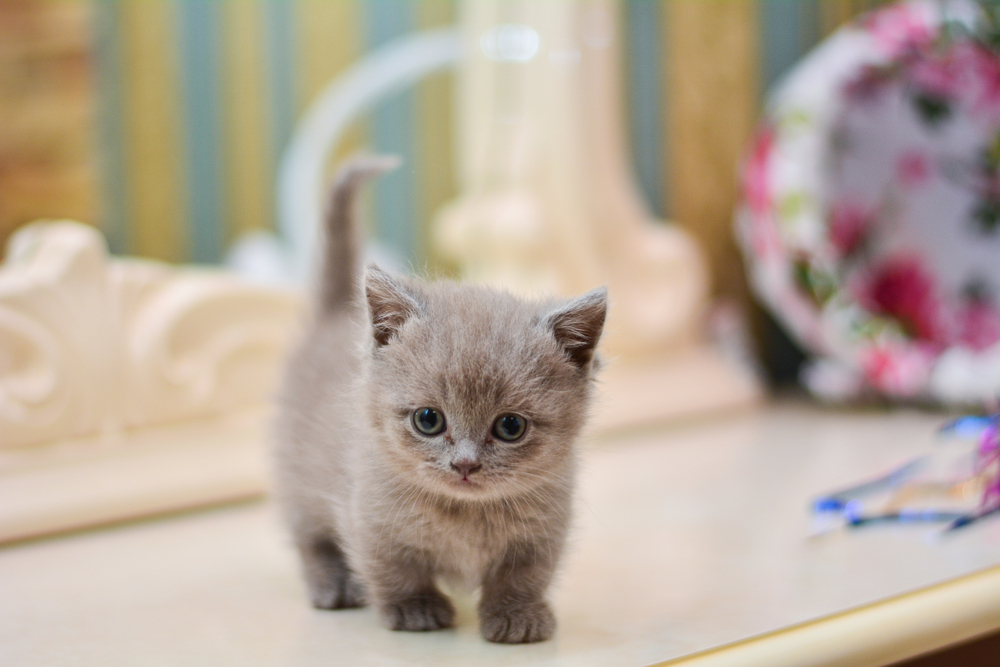
How do you introduce kittens to food?
Remember, weaning is a process, and it may be a little harder for a bottle-fed kitten to navigate without the instincts of their birth mother. No need for any kitten-parent guilt, though — you’re doing a ton to help lay a great nutritional foundation for the little one. Patience and monitoring will be essential as your kitten transitions to a new dietary source.
At four weeks, offer the gruel, dry food, and water, but don’t stress about how much the kitty’s eating. You do want the kitten to start getting used to the taste and texture, though. If you’re bottle-feeding, you can offer gruel off a spoon or from a tongue depressor if the kitten doesn’t seem to be eating from a dish.
At five weeks, swap baby cat kibble for kitten kibble and formula for water when making the gruel. If you were using a tongue depressor at four weeks of age, try to transition from it by slowly lowering it towards the dish of gruel to signify that’s where the food is going to be in the future. Keep half a can of kitten kibble in a dish for each kitten you are caring for, plus gruel or wet food. Set out a water bowl too.
Weeks five and six are transitional. You want to keep feeding kittens milk or formula plus kibble to mitigate any digestive issues. Slowly reduce the amount of formula while increasing the amount of kibble. By seven weeks, the kitten should be eating mainly dry food, and he should be fully weaned at eight weeks.
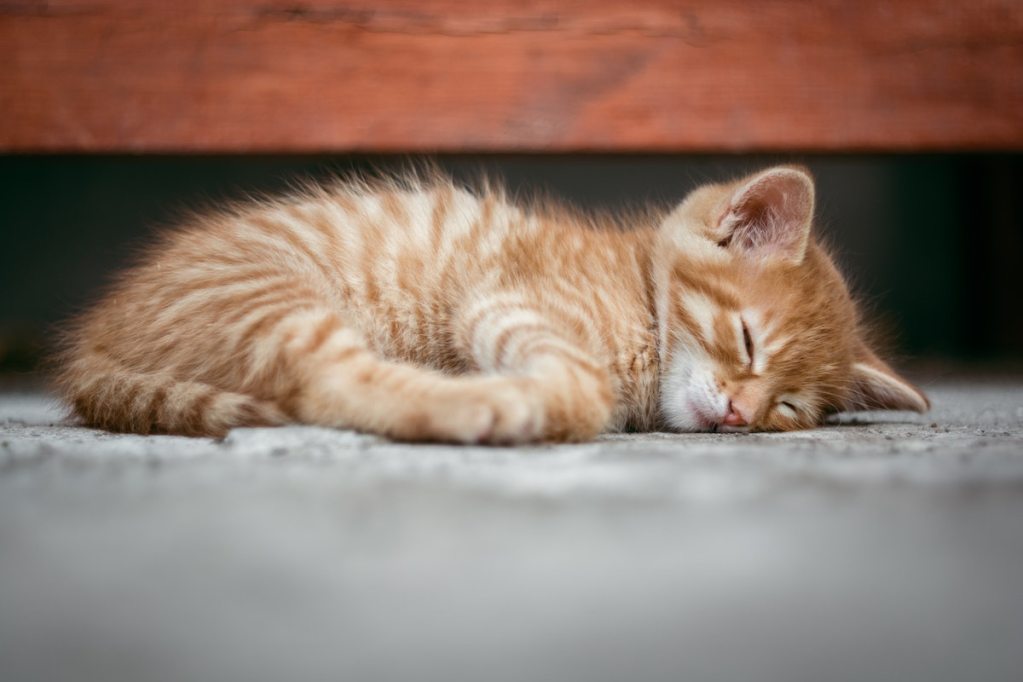
Final word on caring for and feeding newborn kittens
If you’re caring for an orphaned kitten, you may be confused about when you’re supposed to start feeding him solid food. It’s a slow process that takes about a month. Weaning may also look a little different for nursed kittens and bottle-fed cats. First, let the mother take the lead if you’re looking after a mama cat and her kittens. Interfering as she weans her kittens from nursing can make it more challenging for everyone.
Whether the kitten is eating from Mom or a bottle, you can start putting out gruel, dry food, and a water dish at four weeks. Let the kitten explore and don’t worry too much about how much they’re eating. Most of their nutrition and hydration are still coming from milk or formula. You’ll gradually reduce the amount of milk or formula the kitten gets while increasing solid foods, and eventually, your kitten will only eat cat food and will only drink water. As always, discuss any concerns with a vet.

